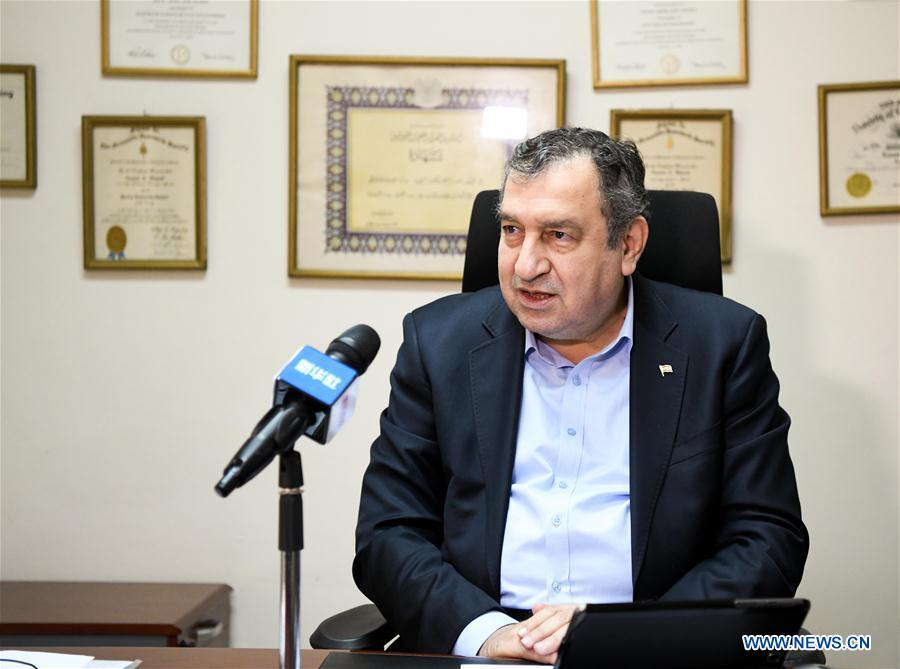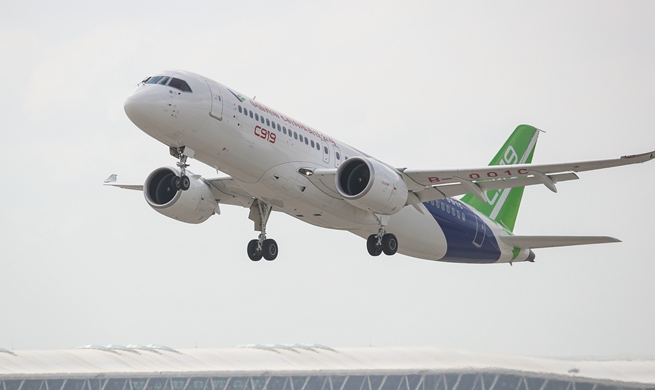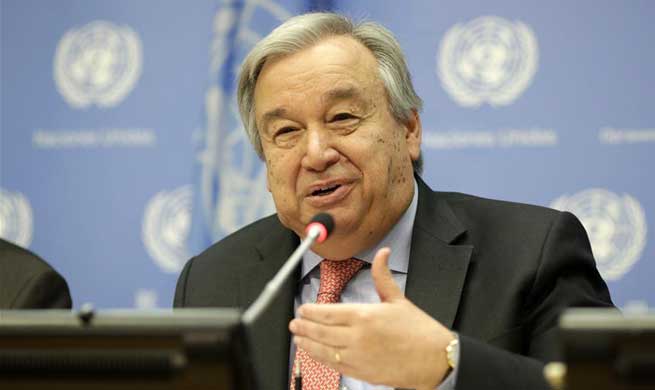
Egypt's former Prime Minister Essam Sharaf receives interview by Xinhua News Agency in Cairo, Egypt, July 12, 2018. The growing cooperation between China and the Arab states has reached new heights in recent years, particularly after China launched its Belt and Road Initiative (BRI), Sharaf told Xinhua in an exclusive interview on Thursday. (Xinhua/Wu Huiwo)
by Mahmoud Fouly, Emad al-Azrak
CAIRO, July 13 (Xinhua) -- The growing cooperation between China and the Arab states has reached new heights in recent years, particularly after China launched its Belt and Road Initiative (BRI), Egypt's former Prime Minister Essam Sharaf told Xinhua in an exclusive interview on Thursday.
China-Arab States Cooperation Forum (CASCF) was established 14 years ago, but its effectiveness has greatly increased and the Chinese-Arab trade exchange remarkably multiplied in the years following the BRI proposal, said Sharaf, head of Sharaf Foundation for Sustainable Development.
The eighth CASCF ministerial meeting was held Tuesday in Beijing, where China vowed to assist Arab economies and establish a future-oriented strategic partnership of comprehensive cooperation and common development.
Sharaf said that the recently held CASCF meeting has been based on the growing understanding and win-win partnership between the two sides.
"This meeting has shown that there is a present strategy for Sino-Arab cooperation with a work schedule based on the BRI. When there are clear policies and specific agendas, there become more authentic projects and cooperation under the BRI umbrella, which is very encouraging," said the former prime minister.
Bilateral trade volume rose from 37 billion U.S. dollars in 2004 to some 191 billion dollars in 2017, making China the second largest trading partner of the Arab countries.
Sharaf stressed that China enjoys high credibility in the region due to its governing principle of non-interference in other countries' domestic affairs and its diplomacy based on economic and cultural aspects to achieve joint development for a shared future.
He added that the coming period will see massive Chinese activeness in the fields of cultural dialogue and the Arabs can contribute a lot in this regard.
Sharaf said that China establishes partnerships based on the principle of "let's think together, work together and share the fruits together."
"I expect a very big leap in the Arab-Sino relations for the Arabs dream of a balanced world based on partnership rather than hegemony and on moral principles rather than colonial ones," he told Xinhua.
Proposed by Chinese President Xi Jinping in 2013, the BRI aims to create greater trade, infrastructure and people-to-people links between Asia, Europe, Africa and beyond by reviving and expanding the ancient Silk Road whose modern version comprises the Silk Road Economic Belt and the 21st Century Maritime Silk Road.
"The BRI is a historical initiative, for it is the only initiative in history that is joined by about 70 percent of the people in the world," said Sharaf, noting that tens of states and international organizations have engaged in cooperation protocols with China under the BRI.
He said that China's constant support for Arab causes and the Arab support for China's territorial integrity led to greater understanding between the two sides that could be translated into BRI-related projects.
"Arab-Sino trade itself is not the purpose, but the purpose is to achieve joint development that would raise the standard of living and eliminate poverty under the BRI umbrella," he said.
Sharaf said that the growing understanding between China and Arab states and their wide-ranging consensus on regional and international issues are reflected on the increasing number of Chinese firms operating in Egypt and other Arab countries.
He highlighted Egypt's Suez Canal as a vital waterway with a strategic location that can play a key role in the maritime side of the BRI. The success of the Suez Canal region in providing logistic services for the 21st Century Maritime Silk Road will contribute to the success of the whole initiative.
The success of the BRI can "be easily measured by the number of participant states, the global interest in the initiative and the growing Arab-Sino relations under its umbrella," Sharaf said.

















